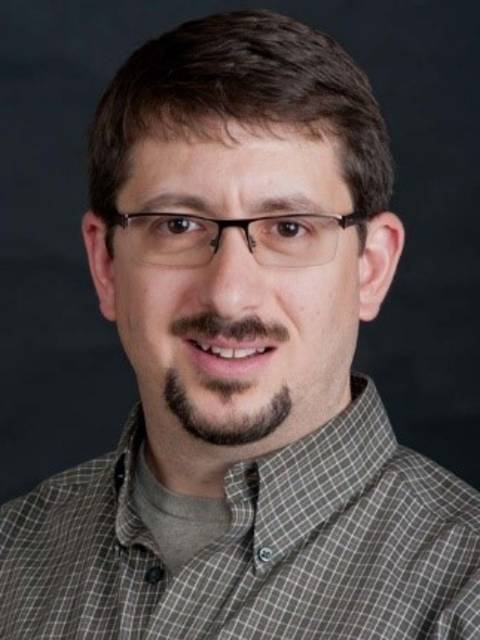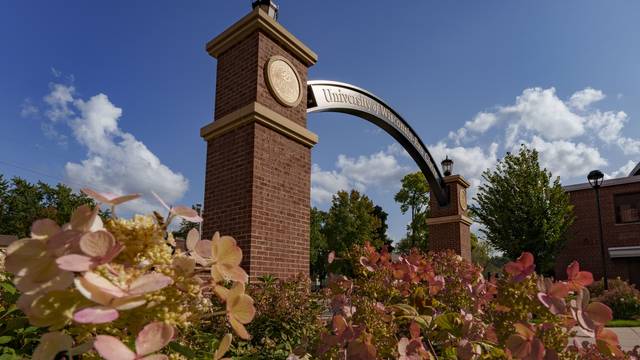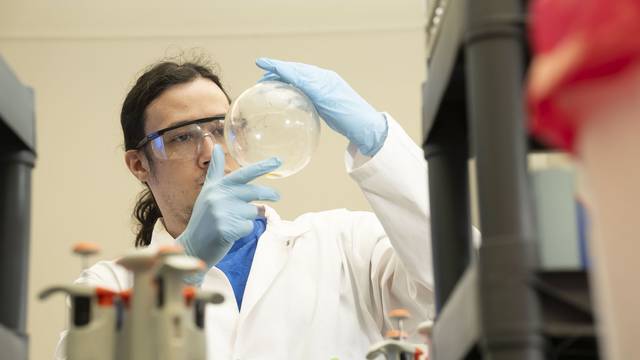It’s five minutes to the hour on a Thursday afternoon in the sky-high Hibbard classroom and already a buzz is beginning to collect. The topic of conversation? The best course of action to usher UW-Eau Claire to carbon neutrality by 2050. Ideas ricochet back and forth, and the force of the cumulative perspectives and experiences is channeled into one vital report to be presented to campus leaders.

Welcome to Honors 389, Taking the Measure of Sustainability, led by Dr. James Boulter. In this class, two times a week, students take part in boots-on-the-ground work to measure and quantify the UW-Eau Claire carbon footprint. From administering a campus-wide survey to gauging commuting habits to sifting through Excel Energy statements, the 2018 fall cohort is only the latest in a string of students, dedicated to helping create a better, more sustainable world.
In 2007, Chancellor Brian Levin-Stankevich signed the ACUPCC or American College & University Presidents Climate Commitment and, since that date, 655 other institutions across the country have joined, committing to achieve carbon neutrality. To be a part of this historic commitment, universities must submit an action plan and annual progress reports.
The University Honors Program partnered with this campus-wide effort and thus Honors 389 was born. In fact, “Honors students in colloquia have been entirely responsible for tracking the university’s net greenhouse gas emissions for full decade,” notes Dr. Boulter. “Further, students from those classes have extended that work on campus and in the community: they were the driving force in a two-year collaborative effort to develop a campus climate action plan and roadmap to carbon neutrality by 2050. Others were instrumental in the first reporting of the carbon footprint for the City of Eau Claire’s municipal operations, and, years later, for the entire city.”
It's because of the data collected, interpreted, and presented by Honors students that UWEC leaders can plan for the future, implementing new policies and investing in opportune areas. While at least one more year of data is needed, the early trend of about 12% reduction in carbon emissions is promising. In chatting with students from the latest cohort, it’s agreed that if it were not for the mix of skill sets and experiences that Honors classes bring, this effort would have been far less seamless as everything from data collecting to poster designing was needed.
In the future, Dr. Boulter hopes the Honors Program will expand and facilitate student interaction with other local bodies to conduct carbon inventories and develop action plans to achieve carbon neutrality. And, above all, “that the students know that the work they while at UW-EC has an impact that lasts beyond their time here.”
This unique Honors colloquial experience (HNRS 389.502) will be offered in Fall 2019.



